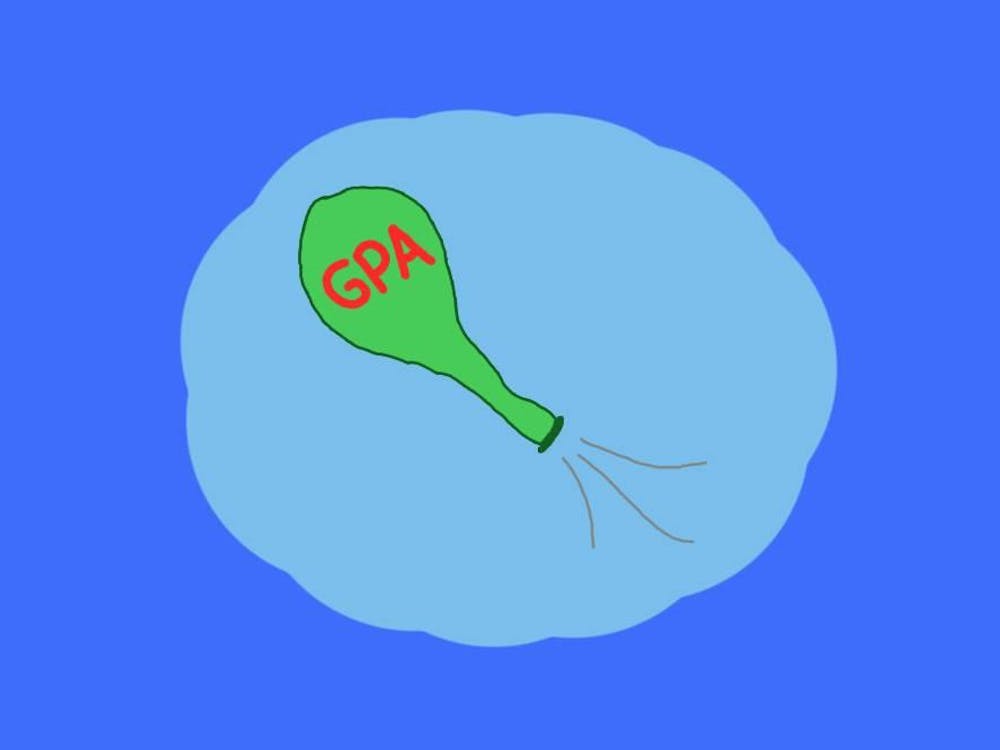I'VE FINALLY figured out how to make a million dollars. Wait, scratch that - make it a billion. I've decided to patent online banking, or maybe online newspapers. I know it sounds absurd, but that's the way it goes these days.
Take one new, high profile Internet company, Priceline.com. Priceline developed the idea of selling airline tickets on the Internet - hardly that innovative a strategy, and one that since has been expanded to other products. In Priceline's inverted auction, bidders submit a "reasonable" price for a ticket. Whether this business model is actually distinct enough to warrant a patent is questionable. Patents are best-suited to protect innovative products, not existing practices.
The U.S. government grants patents in order to protect inventions; to promote research and development. To deserve a patent, however, a company needs a process or development worth protecting. One requirement for a patent is that the invention must not be in use elsewhere. This includes applications of existing systems to closely related mediums. As the U.S. Patent Office Web site states, "The subject matter sought to be patented must be sufficiently different from what has been used or described before that it may be said to be non-obvious to a person having ordinary skill in the area of technology related to the invention."
Putting an auction or bidding service onto the Internet seems quite obvious, especially when one notices other major Web sites such as eBay.com, ubid.com and onsale.com - they are all sites which revolve around some type of auction.
The Priceline model is a variant of the aforementioned Web sites, but it isn't revolutionary. Evidently, the Patent Office disagreed, and granted Priceline Patent #5,897,620 on April 27.
This might not seem like a big deal, but at a time when the Internet is encouraging unprecedented growth, shrewd businessmen are manipulating patents to try to protect their businesses. Protection comes at cost to the consumers - without any sort of competition, the consumer is at the mercy of the patent-holding company.
Priceline has filed a lawsuit against Microsoft's Expedia Web site, claiming a patent infringement. According to Wired Online, "legal experts say [the lawsuit] will be a strong test of the strength of so-called business-method patents" (Oct. 15, "High Stakes in Priceline Suit"). The case may set an important precedent for future online patents and their protection. Hopefully, the court will allow Microsoft to continue its plan to compete with Priceline.
Patents should not be granted for processes that already exist - whether online or not. While there is a rapid development cycle on the Internet - copycat sites can be launched with relative ease - there are significant barriers protecting new companies.
Even though competing sites can be built quickly, the first site in any category gains a significant advantage in branding. A Web site is nothing more than a name at the top of your browser, and associations are quickly developed between locations and functions of Web sites. For instance, although it's relatively easy to create an online bookstore, it's hard to drive consumers to use it.
Amazon.com capitalized on its status as the first online retailer of books. This advantage helps Amazon.com maintain its lead over competitors, even a rival like BarnesandNoble.com, which relied on an established brand and an enormous amount of capital to prevent being left behind.
Lack of capital also slows competitors, and is closely related to being the first Web site in a particular business. Although setting up a Web site may be easy, executing the related business plan usually is much harder.
As in the example of Amazon.com, competition requires an enormous ad budget to drive consumers to the Web site, as well as polished logistics and warehouse systems. A number of online sites have recently launched ad campaigns with budgets in excess of $50 million. Easier said than done. A startup easily could build a site similar to Priceline.com, but actually competing would be much harder.
In reality, new companies do not have too much to fear as long as they themselves execute their business plan. The advantages inherent in launching first, establishing a name, and maintaining a brand are large on the Internet where one name quickly can be associated with a product or service.
Overall, the protection naturally available to Internet companies through de facto measures is very comprehensive - companies do not need patents that provide them with a lucrative monopoly in their particular niche on the Web.
Hopefully, the courts will see that Internet companies should not be granted patents for obvious business models. Not only do they not meet patent qualifications, but protection is unnecessary. The only victim of flimsy patents will be the consumer.
(Nick Lawler's column appears Wednesdays in The Cavalier Daily.)




